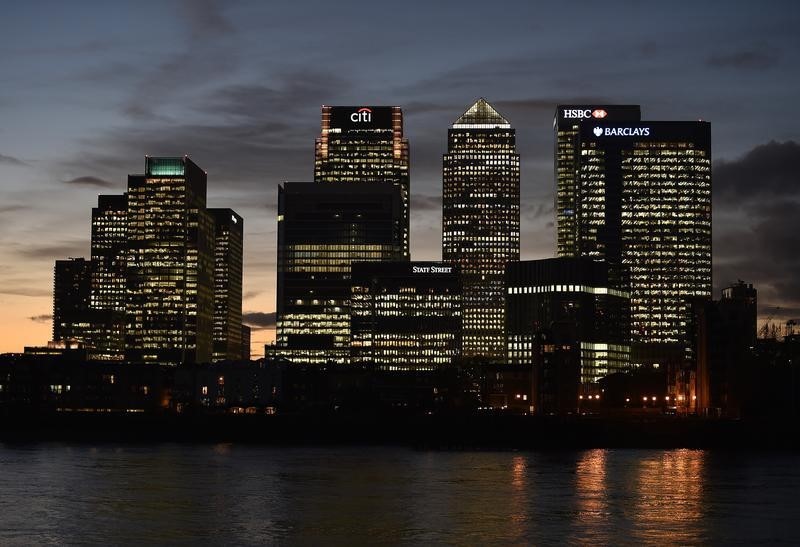LONDON (Reuters) - Major British businesses plan to step up investment this year despite seeing increased risks from May's general election and a softer economic outlook, a survey by accountants Deloitte showed on Monday.
Deloitte said firms planned to raise investment by an average of 9 percent this year compared with 8 percent in 2014, which would take business investment to its highest share of gross domestic product since the dotcom bubble in 2000.
"Chief financial officers expect 2015 to be a year of investment and of recovering real earnings ... suggesting the UK will post decent growth through 2015," said Deloitte chief economist Ian Stewart.
Firms' investment growth in Britain is likely to be higher than in the United States, euro zone or Japan, Deloitte said. It added that CFOs expected to raise wages by 2.9 percent.
Both investment and wages have repeatedly undershot expectations since 2010. Although they started to pick up last year, the Bank of England has said that overall economic growth appears unsustainably dependent on consumer spending.
Figures on Friday showed consumer credit growing at its fastest in nearly a decade, while banks' lending to businesses remained soft and manufacturing growth slowed.
The Deloitte survey showed confidence about the economic outlook slipping from highs reached in 2014, in line with similar reports from Lloyds Bank and the EEF manufacturers' association, also released on Monday.
CFOs had the lowest confidence about the outlook for their company in two years, while the EEF survey showed the proportion of executives expecting economic conditions in Britain to improve falling sharply from a year earlier.
But a bigger concern for the firms taking part in the Deloitte survey was Britain's election in May 2015.
Opinion polls show the opposition Labour party slightly ahead of the Conservatives, who currently govern in coalition with the Liberal Democrats. It is possible once again that no one party will win enough seats for a workable majority.
The possibility of policy change and uncertainty linked to the election topped CFOs' assessment of risks, followed by the risk of deflation in the euro zone and a future British referendum on leaving the European Union.
Deloitte said this marked a big shift in firms' thinking. "Going into each year, from 2008 to 2013, CFOs' main concern was the state of the UK economy. Now the risks are seen as lying elsewhere," Stewart said.

The survey was conducted between Nov. 27 and Dec. 15 and covered 119 large companies, most of which were listed on the British stock market. The value of the listed firms was equivalent to just under a quarter of the stock market.
(Reporting by David Milliken; Editing by Mark Trevelyan)